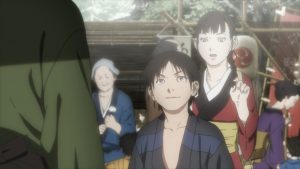 Every season since winter has offered us one series that proudly upholds the timeless and cinematic tradition of anime. It started with Dororo and continued through Vinland Saga (which is still airing, of course) and now we have Mugen no Juunin: Immortal. Even in the comparative backwater of anime fandom where series like this exist Immortal is toiling mostly in obscurity, a series even fans of the manga despaired (before it premiered, at least) of doing the material justice. But there’s no accounting for genius, and Hamasaki Hiroshi is displaying that in spades with this series.
Every season since winter has offered us one series that proudly upholds the timeless and cinematic tradition of anime. It started with Dororo and continued through Vinland Saga (which is still airing, of course) and now we have Mugen no Juunin: Immortal. Even in the comparative backwater of anime fandom where series like this exist Immortal is toiling mostly in obscurity, a series even fans of the manga despaired (before it premiered, at least) of doing the material justice. But there’s no accounting for genius, and Hamasaki Hiroshi is displaying that in spades with this series.
 While every episode of this adaptation has been at least very good, this may have been the best one yet. At times Immortal has been palpably too rushed (understandable though that may be), and the technical side has intermittently looked strained. Neither was the case here – it was an episode that looked pretty lavish by this show’s standards and more importantly, it really took its time in savoring the story. And it was a gem, one that tacked very close to the layline Immortal’s core theme is sailing. It was clear that Hamasaki and writer Fukami Makoto understood the importance of this episode to the overriding plot, and weren’t going to be guilty of hurrying through it.
While every episode of this adaptation has been at least very good, this may have been the best one yet. At times Immortal has been palpably too rushed (understandable though that may be), and the technical side has intermittently looked strained. Neither was the case here – it was an episode that looked pretty lavish by this show’s standards and more importantly, it really took its time in savoring the story. And it was a gem, one that tacked very close to the layline Immortal’s core theme is sailing. It was clear that Hamasaki and writer Fukami Makoto understood the importance of this episode to the overriding plot, and weren’t going to be guilty of hurrying through it.
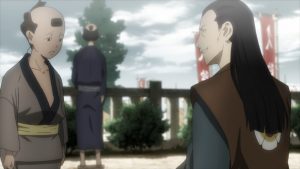 On top of that, it was another week and another stellar guest performance – this time around Obara Masato, not a big name in anime circles but a veteran actor whose resume mostly consists of (voice and otherwise) non-anime roles. He plays Kawakami Araya, selling masks at a local matsuri but clearly skilled with a sword (and blood as paint), as he demonstrates after borrowing Manji’s katana to engage in some impromptu re-design of one of his creations for a young patron. He has a young son named Renzo (Murase Ayumu), whose path crosses Rin’s at the broiled mochi stall.
On top of that, it was another week and another stellar guest performance – this time around Obara Masato, not a big name in anime circles but a veteran actor whose resume mostly consists of (voice and otherwise) non-anime roles. He plays Kawakami Araya, selling masks at a local matsuri but clearly skilled with a sword (and blood as paint), as he demonstrates after borrowing Manji’s katana to engage in some impromptu re-design of one of his creations for a young patron. He has a young son named Renzo (Murase Ayumu), whose path crosses Rin’s at the broiled mochi stall.
 It’s easy to see why Rin’s mind keeps wandering to the past here, as Kawakami was one of the men in the party that killed her parents and raped her mother right in front of her (we see in her flashback that Magatsu-san, who we met in Episode 2, was disgusted by this). While Manji is right to be highly irritated at Rin rushing off to a confrontation on her own yet again the next day, Rin’s approach to this painful reunion is rather impressive. She can’t let this go, obviously, but she’s composed enough to deal with the Kawakami in front of her now and not the one who participated in the worst night of her life.
It’s easy to see why Rin’s mind keeps wandering to the past here, as Kawakami was one of the men in the party that killed her parents and raped her mother right in front of her (we see in her flashback that Magatsu-san, who we met in Episode 2, was disgusted by this). While Manji is right to be highly irritated at Rin rushing off to a confrontation on her own yet again the next day, Rin’s approach to this painful reunion is rather impressive. She can’t let this go, obviously, but she’s composed enough to deal with the Kawakami in front of her now and not the one who participated in the worst night of her life.
 Of course, that man in front of her was once the man from that night cruelly burned into her memory. There’s a certain nobility to her desire to spare Renzo from the fate she’s suffering, which means she intends neither to orphan him or tell him the truth. But the problem is that even if she sees the pointlessness of the path she’s on, she lacks the will to change course. And her approach to Kawakami, arguably noble it may be, is also rather naive. It would have been nice if he’d accepted her terms – an apology to her mother – but to a man like Kawakami, this is only the proof that Rin lacks the resolve to follow her chosen path. We can argue that Kawakami should have put the needs of his son above everything, but can we realistically expect that from a man with his past?
Of course, that man in front of her was once the man from that night cruelly burned into her memory. There’s a certain nobility to her desire to spare Renzo from the fate she’s suffering, which means she intends neither to orphan him or tell him the truth. But the problem is that even if she sees the pointlessness of the path she’s on, she lacks the will to change course. And her approach to Kawakami, arguably noble it may be, is also rather naive. It would have been nice if he’d accepted her terms – an apology to her mother – but to a man like Kawakami, this is only the proof that Rin lacks the resolve to follow her chosen path. We can argue that Kawakami should have put the needs of his son above everything, but can we realistically expect that from a man with his past?
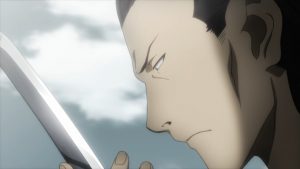 Manji is called on to save Rin again here, and does – and when the time comes, he doesn’t hesitate to end Kawakami (who’s asking for that) despite Rin’s protestations. Whether he really would have killed Renzo too or he simply let the boy think he’d defeated him I don’t know (I suspect the latter). It would be charitable to call this ending even bittersweet – while Renzo survives, he’s facing life as an orphan whose revenge has been denied him – but it is poignant. Rin is willing to go to great lengths (including using Manji’s severed arm) to convince the boy that Manji is dead, and that he needn’t lose his life to revenge the way she has. It’s (again) admirable, but she’s the physician not healing herself, and Renzo is alone in the world. It’s a tragic ending to a tragic story, and one that feels as if it cuts closer to the heart of Immortal than any that’s come before.
Manji is called on to save Rin again here, and does – and when the time comes, he doesn’t hesitate to end Kawakami (who’s asking for that) despite Rin’s protestations. Whether he really would have killed Renzo too or he simply let the boy think he’d defeated him I don’t know (I suspect the latter). It would be charitable to call this ending even bittersweet – while Renzo survives, he’s facing life as an orphan whose revenge has been denied him – but it is poignant. Rin is willing to go to great lengths (including using Manji’s severed arm) to convince the boy that Manji is dead, and that he needn’t lose his life to revenge the way she has. It’s (again) admirable, but she’s the physician not healing herself, and Renzo is alone in the world. It’s a tragic ending to a tragic story, and one that feels as if it cuts closer to the heart of Immortal than any that’s come before.


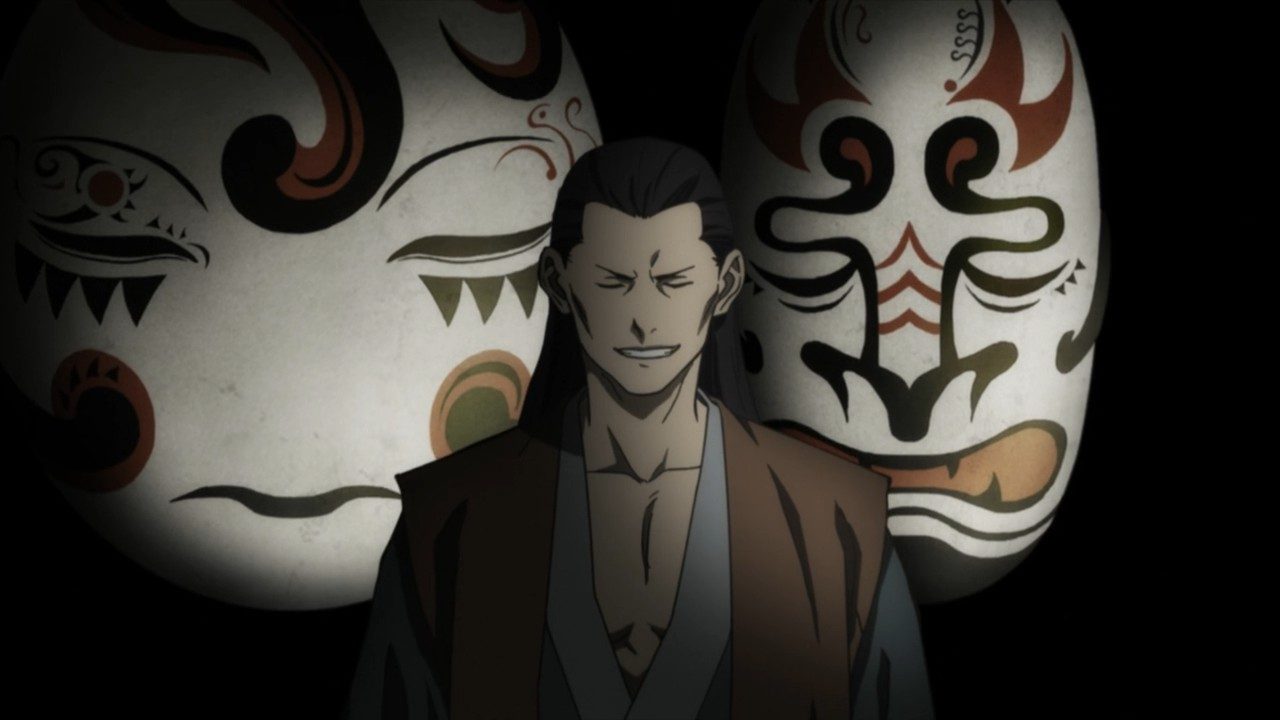
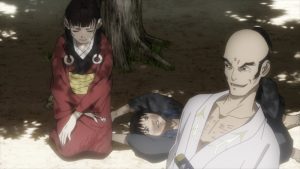

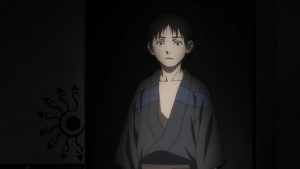


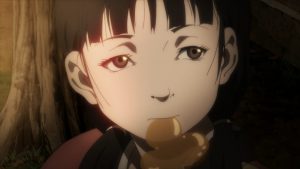
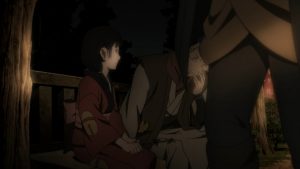
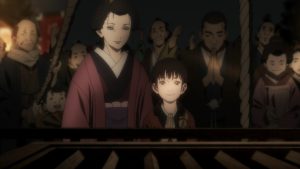
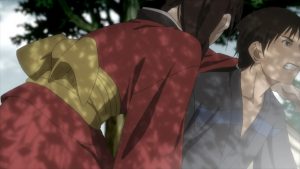



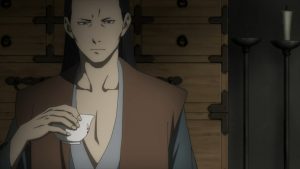
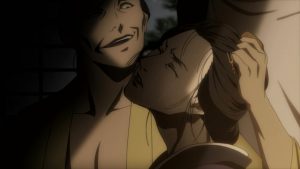
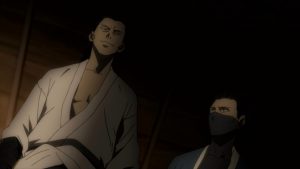
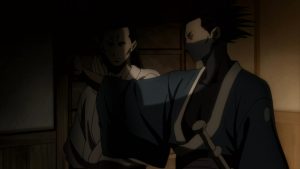
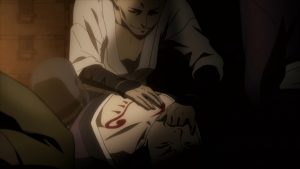
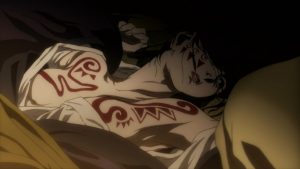

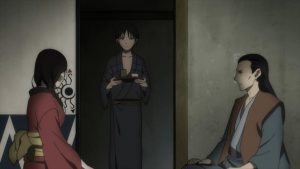
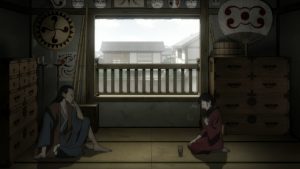

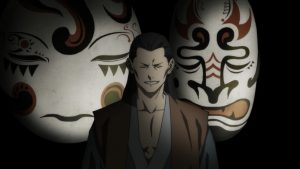
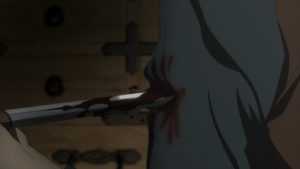


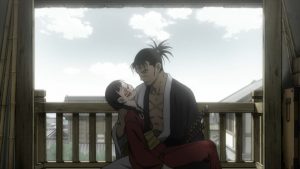
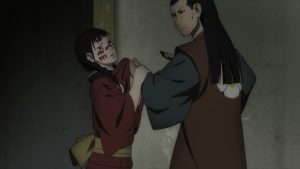
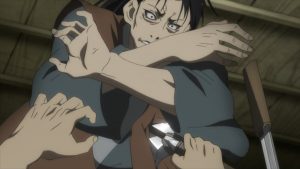


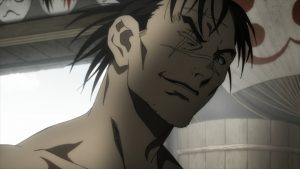

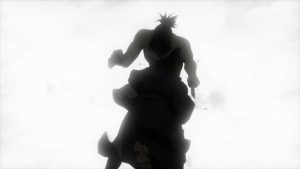






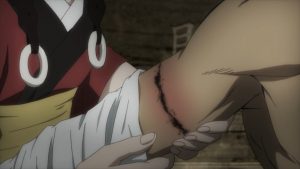
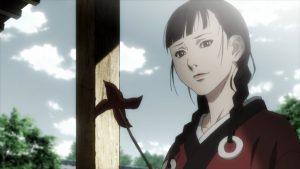
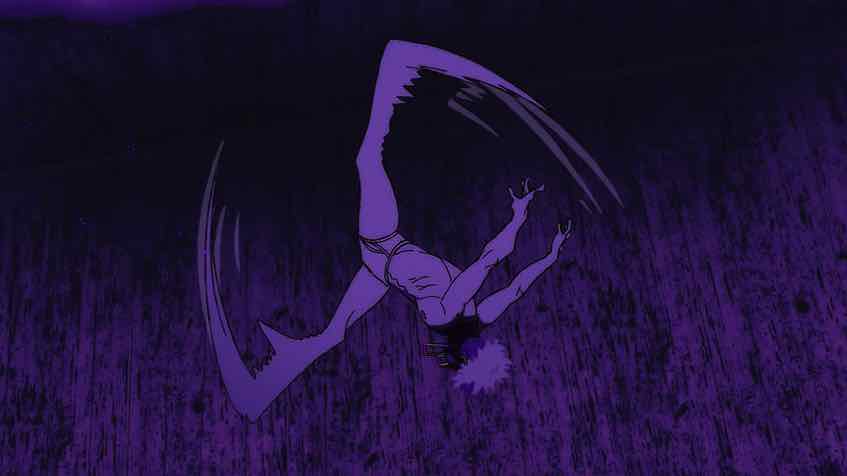
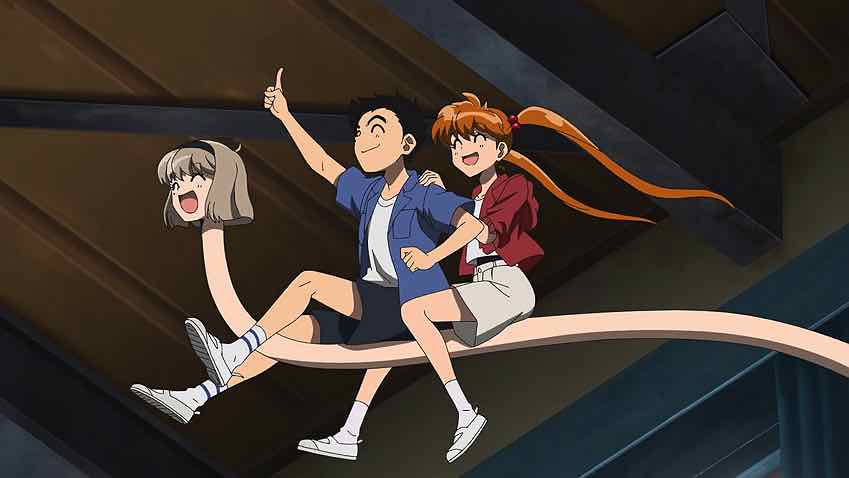
Amarantine
November 8, 2019 at 2:10 amGreat review. It’s nice to have your posts on this show to read, since as you said it is indeed toiling in obscurity, with discussion on it being rather hard to find on the internet. Being an Amazon exclusive (which apparently doesn’t even air on TV in Japan) probably doesn’t help, I suppose.
Guardian Enzo
November 8, 2019 at 6:49 amAmazon and Netflix are really killing the discussion of quality anime this season.
dc22
November 9, 2019 at 6:30 amHow do you feel about all the manga readers complaining about the pacing and cut content?
I think that’s the main reason for this not being more popular.
(However, the loosely tied self-contained episode structure is my favorite, the Dororo and Vinland comparisons are on point)
Guardian Enzo
November 9, 2019 at 8:35 amI understand the complaints and expected them. but I don’t see the point. When you try to adapt a 20-year manga in two cours, what do you expect?
On balance, I think the licensing/release factor is a big issue in the lack of a Western following.